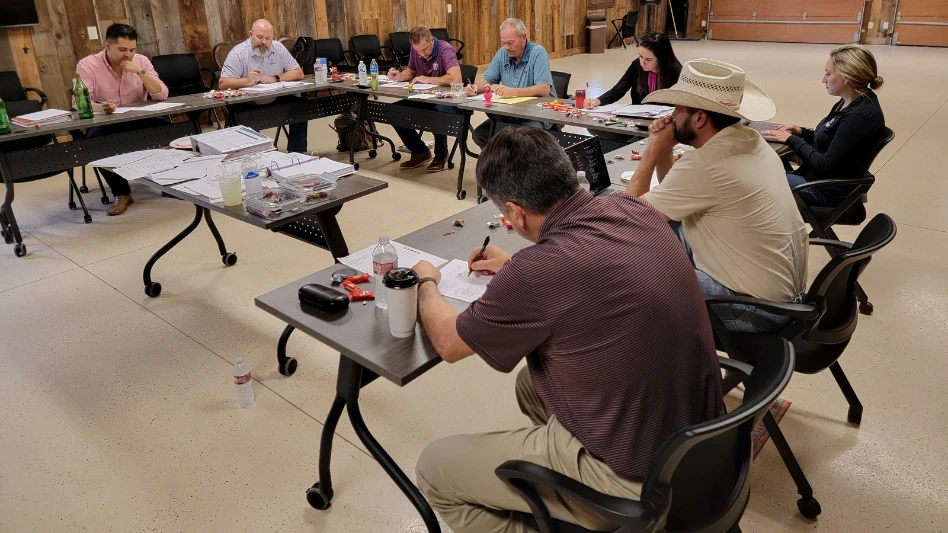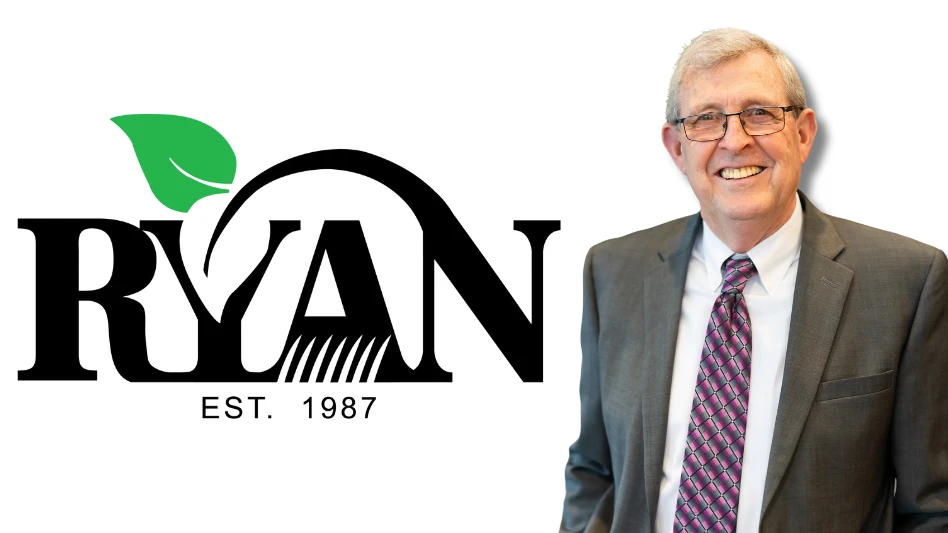 It’s a way out for a smaller company that couldn’t hack it in the tough economy. It’s a succession plan for a seasoned industry veteran looking to monetize his business.
It’s a way out for a smaller company that couldn’t hack it in the tough economy. It’s a succession plan for a seasoned industry veteran looking to monetize his business.
It’s a partnership opportunity for an entrepreneur who wants to scale up.
Consolidation is all of these things, and a personal approach to joining forces is what makes The Yard Group’s business model better than the behemoth, if you ask CEO David Pyne.
“Getting bigger isn’t always a negative,” he says, shucking the stigma of a Goliath hungry for acquisitions. The Yard Group isn’t like that.
“We use big company ideas, but we never lose sight of what got us here, which is the local brands and customer relationships.,” he says.
The Yard Group, headquartered in Glastonbury, Conn., was created in 2007 with the purpose of bringing together landscape industry talent in the area.
Since its founding, the parent company has acquired four major landscape brands in the central Connecticut region.
The first to join The Yard Group was B&B Landscaping & Design of Glastonbury, followed by Burhoe Landscaping and Lawn Service of Farmington. Most recently, the parent company broadened its portfolio by acquiring Readco Landscaping and Connecticut Homescapes, both in central Connecticut.
“The landscape industry is no different than a lot of other cottage industries in this country that have been consolidated over the last 10 to 15 years,” says Michael Ferris, a founder of The Yard Group.
“There are advantages associated with scale and purchasing, and you can pass savings to the bottom line and to customers.”

It’s not just about dollars and cents. For The Yard Group, bringing more companies under its umbrella allows each of its brands – Burhoe, Readco, B&B and Connecticut Homescapes– to offer more value to clients.
“We want to bring as many products and services into the relationship as we can to make the experience as simple and hassle-free for the ultimate client as possible,” Ferris says. “Our feeling is we can create longer-term relationships with customers by serving them in a variety of ways across the whole spectrum of landscaping products and services.”
Homegrown Identity. When The Yard Group acquires a large, regional brand, the plan is always to keep key people and employees in place.
Perhaps some back-room jobs are trimmed out, since the parent company can offer centralized administrative services, including human resources, purchasing and other core business functions.
But the people who have worked hard to grow the acquired company into a successful, desirable entity stay on board. That’s part of the deal.
“There is a human side to this business model,” Pyne says.
“We are not going in like corporate behemoths, we are going in and saying, ‘Those jobs are staying put.’
“Jobs are safer than ever, and we can offer their clients better service and sharper prices than ever before – and by the way, we’re a local company, as well.”
Most times, when employees think consolidation, they figure they’ll be out of a job. “What you find with this business model is the founders of the brand stay on and are a necessary equation to the go-forward success of the entity,” Pyne says.
Same goes for key personnel and operators in the field.
“The difference is, now they have the kind of career potential they probably didn’t have before.”
The local, homegrown story is an important part of The Yard Group’s culture, and its branding efforts.
The parent company isn’t melting out-of-state outfits into its operation.
There are plenty of opportunities to consolidate regionally. And so far, integration has been solely horizontal, though The Yard Group sees how vertically integrating into the retail nursery business could diversify the business.
“We could deliver our footprint in a way that does not require the upfront investment associate with renting space and buying equipment,” Ferris says.
When larger brands like Connecticut Homescapes and Readco are absorbed into The Yard Group, they retain their identity. Their names are marketed, but The Yard Group drafts service offerings from one brand to the next to make each company’s offering more robust.
“The fact is, we are still a local landscape company, and we are not going corporate,” says Pyne, acknowledging that one challenge of growing is working to maintain brand identity and customer intimacy.
Pyne says The Yard Group maintains a balance by always returning to the people who drive the company – the founders of each acquired company.
 Those business owners decide to take The Yard Group opportunity because the marriage makes sense financially, culturally and philosophically.
Those business owners decide to take The Yard Group opportunity because the marriage makes sense financially, culturally and philosophically.
“There is a certain profile of an entrepreneur who is intrigued with involving himself economically and personally in a different career path, and it gives him a way to monetize his investment,” Ferris says.
For The Yard Group, adding more like-minded businesses to the mix diversifies and expands the parent’s suite of services. This can be a real buffer in a tough economy.
“We think we need to be diverse and nimble. From our experience, it is clear that this area has a lot of capacity in the industry for this approach,” Ferris says.
Photos supplied by The Yard Group
Find a fit
Here’s what to look for when looking at a prospective acquisition.
When a business becomes part of The Yard Group family, the owner is a key part of the success of the merger. “We don’t buy a company unless the local founder wants to stay and make a career,” says Michael Ferris, a founder of the Glastonbury, Conn.-based conglomerate, which has four landscape company brands under its parent, The Yard Group.
A company must be a match financially, culturally and philosophically. Here are some of The Yard Group’s priorities when vetting a prospective acquisition.
The owner. “We absolutely look at the DNA of the founding partners of the company before we merge,” Ferris says, adding that a thorough interview process helps The Yard Group dig deeper and find out what makes the prospect tick. “A company always takes on the character of the founding partner– we look at that.”
The price point. What does the company charge for services? “We know enough about the Connecticut landscape industry that finding out what a founder is charging gives us a sense of whether the company is able to deliver a quality service and what kind of clientele they have.”
The ‘list.’ Who buys from the company, where do these people live and how much are they willing to pay for services? This information is available on the all-important customer list. “We want to join forces with companies that go after similar demographics that we do,” Ferris said. That is, high-end clients looking for quality work and who are willing to pay a higher price tag for quality. “We differentiate ourselves on quality and the broad range of services we offer,” Ferris said.

Explore the March 2013 Issue
Check out more from this issue and find your next story to read.
Latest from Lawn & Landscape
- LMN partners with Attentive.ai
- Get to know the generations working for you
- Addressing addiction in landscaping
- Fairway expands national footprint with 6 acquisitions
- Graze Robotics opens new headquarters in Plano, Texas
- Addiction in the green industry
- Kress earns Sourcewell approval
- The best laid plans





